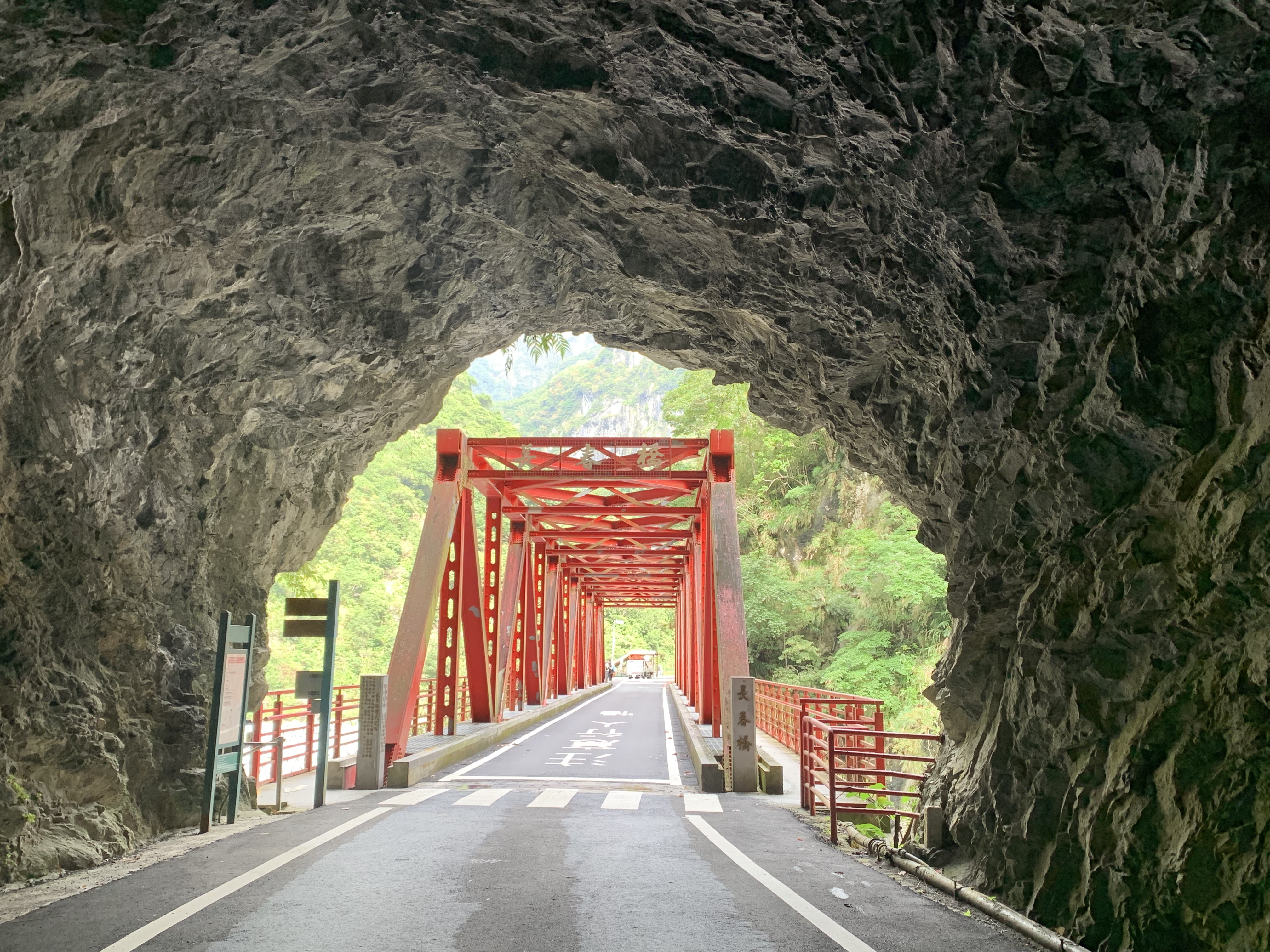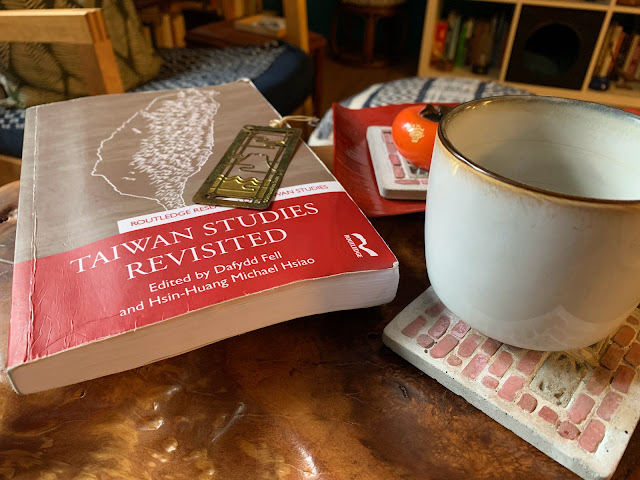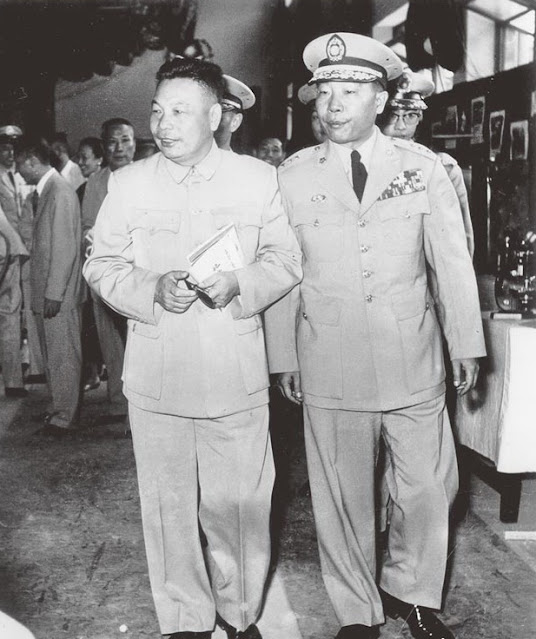Fun fact: the original title was "an audio-visual weed garden" but that would have raised questions not answered by the post.
And weeds: I'll sometimes leave out pots of unplanted soil and see what blows in. On one side I have a big ol' fern because a fern seed decided to grow there. On the other edge, I have an unruly crown-of-thorns, again just a weary traveling seed that likes my windowsill enough to stick around.
I don't have any specific goal for this window or these weeds, for whom I am now an adoptive plant mom. I figure that if a random plant is going to choose my window as a good place to grow, it's probably going to be very easy to grow. As a black thumb, that works out great for me.
I'll let you decide what this has to do with language learning, but in my own weedy head, there is a connection.
Soon after I wrote my last post on learning Armenian and Taiwanese at the same time, I signed up with the Armenian General Benevolent Union (AGBU) free online beginner Armenian class. Brendan joked that I could fuse both languages into some sort of new tongue, and that one language would be more efficient to study, but I thought taking an online course would be easier.
While imperfect -- there was a lot of Audiolingual style drilling, some of the language and grammar points went by far too quickly with inadequate practice, the tests were far easier than the content, and I hardly had to speak at all -- it was something I had to do every week, which pushed me to commit to studying. It improved my letter recognition quite a bit. It was highly audio-based: pictures, yes, but mostly listening to other people speak Armenian and choosing appropriate words, pictures, or sentence completion items. There were online meetings, but it turns out that Yerevan time is not very convenient for me in Taipei. I still scored 100%, because again, the tests were too easy.
Հայերեն շատ դժվար է, բայց ես լավ ուսանող էի:
For much of my class, however, I wondered one thing.
Why isn't there a free online Taiwanese course? Why aren't there several at different levels?
I could imagine the descendants of Taiwanese who immigrated abroad might have some interest in that, if they didn't learn the language at home, or didn't learn it very well. Foreigners who live in Taiwan or those around the world married to Taiwanese might also find it of interest. Perhaps not many will go on to seriously study the language to gain high-level proficiency, but perhaps that isn't the point.
It's doubtful that the AGBU expects everyone who takes its free courses to go on and become fluent speakers of Armenian. Most of my cohort were, like me, diaspora with an interest in the language of their ancestors that they did not speak. Will some association that parallels the AGBU in Taiwan ever decide to offer this for anyone who wants to sign up?
It wouldn't result in a cohort of fluent speakers, but it might help with awareness that Mandarin is not the only language in Taiwan, and in fact is the newest language to be introduced (forced) here. It would promote Taiwanese identity as something separate from Chinese identity, and help clarify that Taiwanese is not a "dialect" of Mandarin; it is a language, mutually unintelligible with Mandarin.
This would serve slightly different purposes to the AGBU courses: nobody except perhaps Azerbaijan is going around saying Armenians are not a distinct group of people with their own history and culture. I don't mean that in an ethno-nationalist way; whatever you think about borders, it's just true. AGBU is trying to connect սփյուռքահայ like me with their roots. While anyone is welcome to join, they don't seem to necessarily expect that non-Armenians will do so in great numbers.
A free Taiwanese course could have this goal as well, but also attract non-Taiwanese (like me!), spreading cultural awareness beyond Taiwanese communities here and abroad. Again, to offer a first step for people who are beginning to realize that Mandarin is not the end-all and be-all of language in Taiwan, and is certainly not the only option. And it would probably be more effective than ICRT's We Love Hakka for the Hakka language!
It would be amazing if other languages of Taiwan could start this up too. A free Hakka course? Cool. A free Amis For Beginners course? I would take that, honestly. I'd sign up for Atayal, Paiwan, or any of the others, as well. Language preservation efforts are underfoot in those communities already; I'll let the experts speak about whether or not that would be feasible or useful.
I suspect most foreigners who come to Taiwan would still learn Mandarin, because it is a lingua franca, at least in Taipei. And many don't quite have the anti-CCP sentiment that I do; they likely figure Mandarin will be more useful globally than Taiwanese. And they're not wrong! But wouldn't it be great to give people more of a choice and get that minority who isn't learning a language purely for its utility?
Beyond that, I just think Taiwanese sounds better. Goa khòa* Tâi-gí bō sim-míh ho-kóng, m-ku chīn ho-thia*! Words like koai* (to close) and cha-hng (yesterday) are fun to say because they're almost entirely pronounced in the nose. It's also much better than Mandarin at short replies. I don't know how to write these, but the ho, heh and hei-a are much more fun than “是的” and "好"! And I'd much rather say chhong-sía than 幹嘛. It packs more of a punch.
Honestly, for Taiwanese, the hardest part was finding a teacher. I started when I did because that was when a freelance teacher was recommended to me. Some of the Mandarin centers offer Taiwanese -- a friend of mine took a course at TMI, but they aren't widely advertised and I can't vouch for their methods.
In fact, a big problem with both Armenian and Taiwanese is that teaching methods are quite outdated. TESOL has been going on for years about communicative approaches -- this is a broad set of methodological principles that can involve Natural Approach, immersion, lexis-based or task-based methods -- and Mandarin seems to have just now figured out that communicative approaches work better over time than drills and tests. You may remember (?) that I quit Shi-da's Mandarin Training Center many years ago, mostly for this reason. I simply could not with those old Practical Audio-visual Chinese textbooks, lack of authentic speaking practice and demented over-testing. Nevermind their blue bent, and that I got sick of the heavy lean towards standard PRC Mandarin.
But my Armenian textbook, which I'm working through now that my course is over, is still a fully grammar-based notional syllabus that only hints at certain functional uses for the language. The design makes it readable, it doesn't overload with new vocabulary, it explains grammar fairly clearly, and has review built-in. But fundamentally you're still doing exercises and translations before creating your own sentences. The dialogues are inane ("How are you today?" "I'm not good." "I am good. And where is the French Embassy?") but it still hasn't taught me useful things for actually visiting Armenia like, say, "how much is it?" or "I'd like lahmaçun, sarma and a Coke Zero, please".
My Taiwanese textbook is even worse, made bearable only by my lovely teacher, who adds as much actual language practice as she can and only tests rarely. It was typed out, likely by hand, sometime in perhaps the 1980s and doesn't appear to have been updated. It's Maryknoll, created by Christians to teach missionaries, and as such it does weird things like teach you the words for minister, priest, nun and monk before you ever learn how to address a woman (the minister's wife, however, makes an appearance early on. Lots of wives in this book, not many single women who aren't nuns).
There are essentially no comprehension tasks; it's composed almost entirely of a dialogue (some weirder than others), extensive vocabulary notes, and then some grammar notes. There are a few translation exercises at the end of most units. My comprehension is tested only because my teacher tests it. The book never does.
The actual materials are really no better (and are in some ways worse) than the old Practical Audio-visual Chinese books that I hated so much, but I'm more motivated to learn Taiwanese -- yes, it's political -- and I like my teacher more. She doesn't go around like my old MTC teacher being all "我們中國人"! In fact, I think she'd rather drop dead than say anything of the sort.
Though the whole "we Chinese" business was my MTC teacher's right to say -- we can all identify how we please -- that's not how I feel about Taiwan, and to me that's not a helpful way to gain a closer perspective into Taiwanese culture, society and language.
Other materials exist: my friend who took a Taiwanese course at TMI used 生活台語 and called it "okay". Chieh-ting Yeh (a friend of mine) and Alice Yeh wrote Harvard Taiwanese 101. Phillip Lin's highly inconcise Taiwanese Grammar: A Concise Reference is a solid reference material.
Not a lot beyond my Eastern Armenian coursebook exists for Armenian. Reviews call it "innovative", and I was touched that when you buy it, the author mails you a copy herself from Yerevan. But really, it's just the best of a very limited field of otherwise terrible textbooks.
Neither textbook, Armenian or Taiwanese, seems to have much in the way of visual aids. For Taiwanese, it's a good thing I speak Mandarin, as my teacher won't use English, because the book will pretty much never support you with pictures. On the upside, learning Taiwanese has been the biggest boost to my Mandarin in years. Have you tried to learn a third language through your second language? It's a real trip. You get better at both. It helps that my teacher is a fierce gossip, offering all of her political opinions and deets on her annoying neighbors.
The result of these two modes of study -- one online weekly with a teacher, and one almost entirely at home or in a cafe by myself -- have led to two very different areas of proficiency in each language. My Armenian writing is so much better because all I really do is write. I have a much bigger lexicon because it's easier to look up whatever I want to know. With Taiwanese it's always a question of whether and how a tone changes, and whether it's rendered in some obscure character I can't really read, or Pėh-ōe-jī. I'm more limited to whatever is covered in the unit.
And the current Taiwanese unit, by the way? "Would you like a smoke?" "No thanks, I don't smoke." "If you won't smoke, then please have a banana!"
But with Armenian, I can hardly speak. I know what it should sound like from growing up hearing it, but I don't have anyone to practice with, and I won't for awhile. The grammar is complex enough (it has cases! Like Latin! Murder me, please!) that I have to stop and think before I create even a sentence. Taiwanese as fairly smooth grammar, so it tumbles out more easily. It helps that I can use it on a mostly daily basis.
My Taiwanese lexicon is much smaller, but I'm a far more proficient speaker. And yes, I know how to ask how much something costs, and I'll likely understand the answer.
The main issue as I navigate my two baby languages is lack of extensive reading. I'm not exactly a Krashenite; I don't believe that extensive reading and listening are the only keys to fluency. But they are one very important key to fluency, and one I'll also admit I've fallen down on vis-à-vis Mandarin. In Taiwanese it's just a lack of literature I can read. My Armenian reading is much better, but nowhere near the ability to actually read what interests me -- a key issue with the idea that extensive reading for pleasure is the only meaningful way to gain fluency. What if you can't yet read what you would normally read for pleasure? It's the eternal question of adult beginners who aren't engaged by materials for children but can't yet read, say, a novel.
As I wrote the last time I covered this subject, I fill that void with music. It does work; I can look up lyrics so I know what is being said, and gain a clear idea of how the language sounds and flows together. It's not enough, but it'll do for now. It's a good thing I genuinely like the sound of Fire EX, because they comprise most of my Taiwanese listening practice now, with Ladaniva doing a lot of heavy lifting for Armenian.
All of this leads me down a winding, weedy path of where to go next, and why. Like a pot of dirt left out to the elements, I don't have specific goals for either language. Whatever grows there, grows. I'm learning one language for heritage reasons, the other mostly for political and cultural ones. Or rather, both are political, if you take the view that choosing to learn a language at all, especially not for utilitarian reasons, is a fundamentally political act. If I wanted to learn a language that would be helpful in Armenia but more broadly useful, I'd have chosen Russian. Any foreigner in Taiwan can tell you that the language of greatest utility is Mandarin. I've decided I don't care.
Even my Taiwanese friends will sometimes say they aren't concerned with whether their children learn Taiwanese because it's "not useful". It is, though! What about befriending your elderly neighbors? Getting people to like you in the south? Sealing a sale or contract where relationships matter? Making a clear point about the cultural and historical distinctness of Taiwan? Not necessarily wanting to be understood by Mandarin speakers? Those are all technically uses.
One language I might be able to use in daily life soon (I've already started incorporating it), the other may never be used that way. For Taiwanese, I may never achieve full fluency, but I might be able to use it in a majority of my daily interactions, and it does make a point. Maybe that point is this white lady is crazy. Maybe it's hey, there are foreigners in Taiwan who care about the country beyond a place to live well and make money. Maybe. After all, my Taiwanese teacher has said all of her students are foreigners. None are local Taiwanese. She charges a bit more than a typical tutor, and still has clients. Clearly, the interest is there.
For Armenian, who knows. I find myself at a խաչմերուկ -- an intersection. There are a lot of weird things about this language that I want to better understand. Which bits seem to have non-Indo-European origins. Words like խնձոր (khndzor, or apple) came from somewhere, and no one knows exactly what the Hayasa/Urartu/Ararat people spoke. Why does every other language in the region call a couch a sofa, divan, settee or canapé, but Armenian calls it a բազմոց (bazmots)?
Here's what I envision: perhaps never full fluency, but online classes once I get my dental situation sorted out (don't even ask). Then, a savings account. Approximately ten to fifteen thousand dollars. In...let's say...2025? I hop a flight to Yerevan, rent a short-term apartment, sign up for language classes and a conversation partner, and go live my life in Armenian for three months. If I save, I can probably afford three months, no? There are all sorts of things I missed the last time I went to Armenia, including the extremely old and fascinating dragon stones, cuneiform tablets, petroglyphs and weedy, overgrown fortresses.
I have a hankering for the unspeakably ancient, and now I can do that հայերենով -- in Armenian.
Brendan's already on board with this, and would come to see me off. After all, he liked Armenia too.












